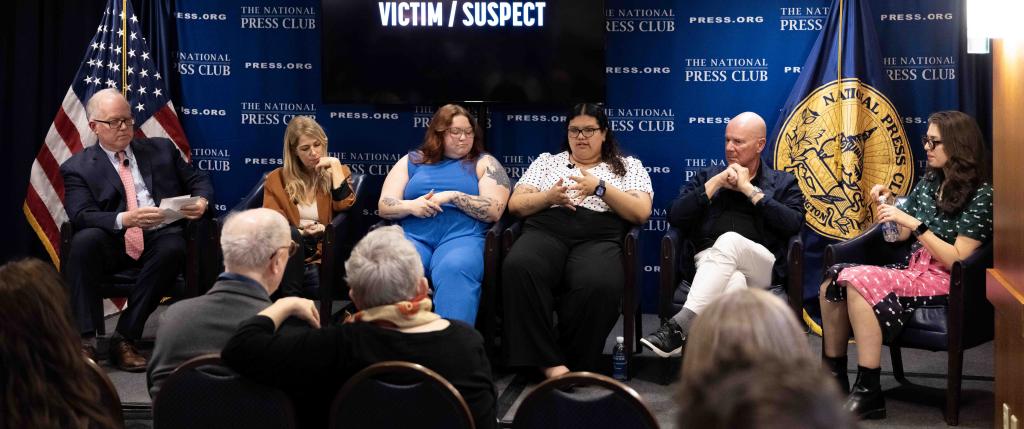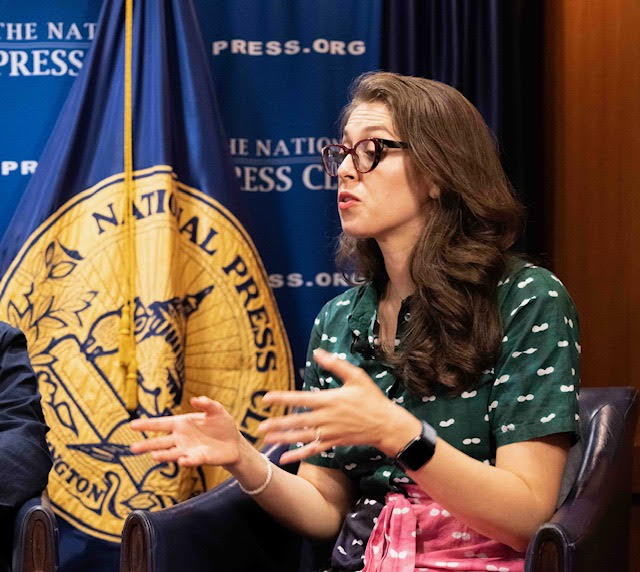“They actually were not doing their job,” said de Leon.
Often, she said, there was no reason for the journalists to do a story other than to sensationalize the issue. In making the film, she said she felt her role was to hold them accountable and push back on this idea that just because you can do the story you should do the story.”
Two other panelists at the event, Emma Mannion and Dyanie Bermeo, survivors of sexual assault who were coerced by police into denying their assault ever happened, said they appreciated de Leon’s approach. De Leon and her team’s objectivity, they said, made them feel they were taken seriously and feel confident that the journalism published about their stories would be centered around the truth.
“Not once did any conversation with Rae [Rachel] start with ‘Emma, I’m going to take your word as it is. It was, ‘I hear what you’re saying and I want to get to the bottom of it,’” said Mannion. “That’s the difference between someone who’s ethically reporting on something and someone who’s just looking for clicks.”
De Leon, Mannion, and Bermeo described how while objectivity is foundational for an accurate story, ensuring survivors feel comfortable and safe is crucial for both their well-being and the accuracy of the story itself if journalists seek to avoid the ways the perpetrating police departments went about getting to the truth.
Bermeo noted that the way the media treats a story, especially when they automatically villify an innocent victim, can impact them over the long-term.

“The way the media impacted me at first was awful. It was horrendous,” she said. To this day I’m still getting reached out to by survivors or people who hear through the media saying they saw a Facebook post about [how I] falsely reported a sexual assault.”
Schwartzman, the film’s co-producer, said she hoped that “Victim/Suspect” would create an emotional response from audiences while centering the victims with the goal of spreading awareness of this trend of victim villification.
“I wanted to be able to make sure that anger was a part of this film,” she said. “I think [de Leon] really showed the dark side of the media in a lot of exclamation-points-in-an-email kind of way. It was very dark.”
Schwartzman thanked the film’s distributor, Netflix, for valuing coverage of such an important topic, although the network ise frequently vilified for being ignorant of social issues more broadly.
The panel also featured the moderator, Sightline Media Senior Managing Editor Cary O’Reilly, co-chair of the National Press Club’s Events Team, as well as Michael Rondini, the father of Megan Rondini, who died by suicide after she reported having been raped.


